Cosi faran tutti (They'll All Do It!) (2012)
Seductive sisters, brazen soldiers, a meddling maid, and a self-proclaimed master of the science of love provide the power play of Così faran tutti (or They’ll All Do It!) What really happened in the days leading up to Mozart’s and da Ponte’s Così fan tutte? What yearnings, what disguises, and what passions?
"An irresistible prequel to Mozart’s Così Fan Tutte"
"Erudite yet earthy, Così Faran Tutti outshines many of our more famous contemporary operas–The singing, dancing and staging enchant on every level"
-Stan Metzger, Editor in Chief/Seen and Heard International
"a fizzing, innovative score"
-Paul Pelkonen/Super-Conductor
FORCES
Cast
- FIORDILIGI ~soprano
- DORABELLA ~mezzo soprano
- DESPINA ~soprano
- FERRANDO ~tenor
- GUGLIELMO ~baritone
- DON ALFONSO ~baritone
Instruments
Flute Oboe Clarinet Bassoon Horn Trumpet Timpani Harpsichord Fortepiano Piano Violins (2) Viola Violoncello Double Bass
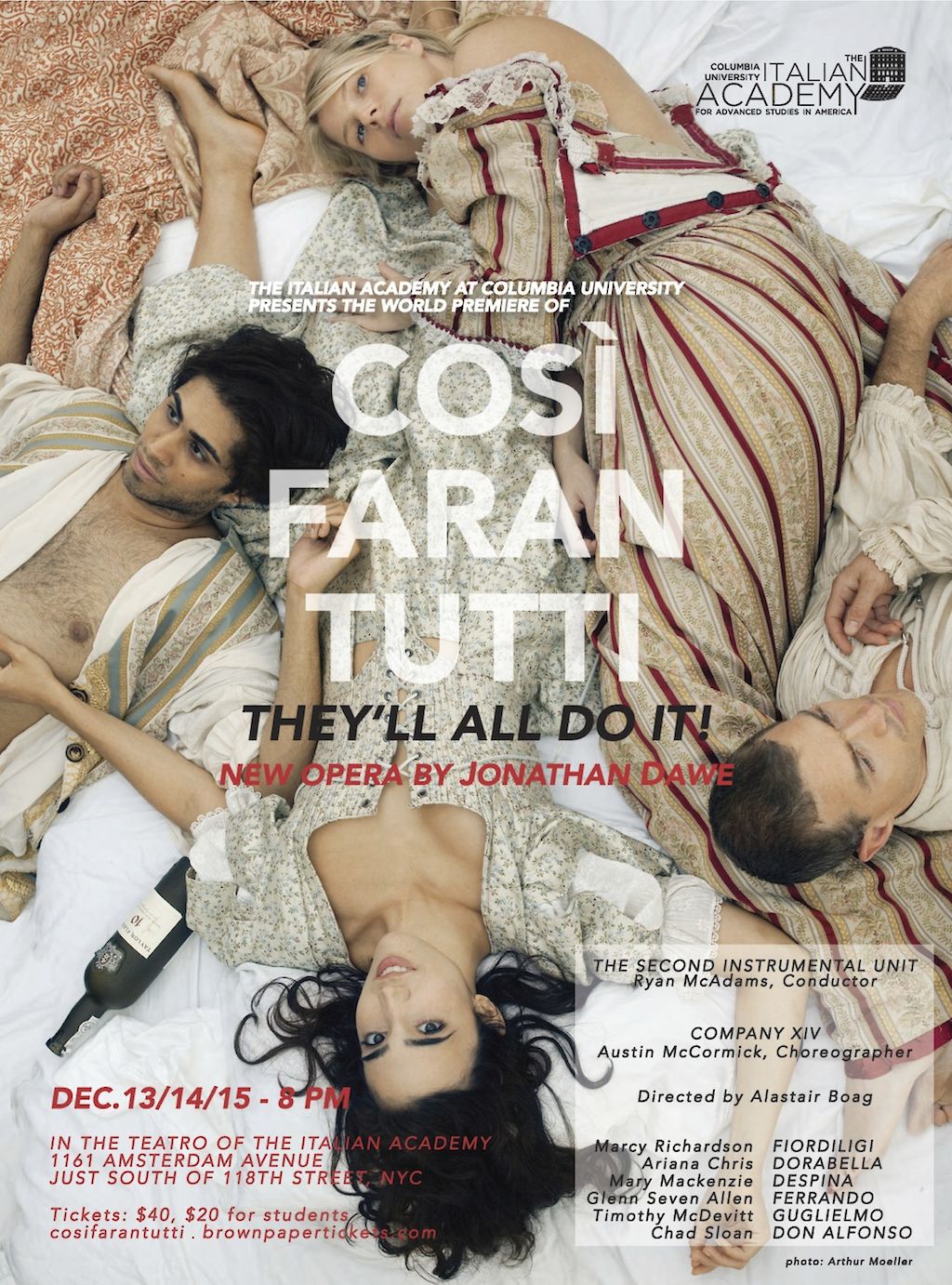
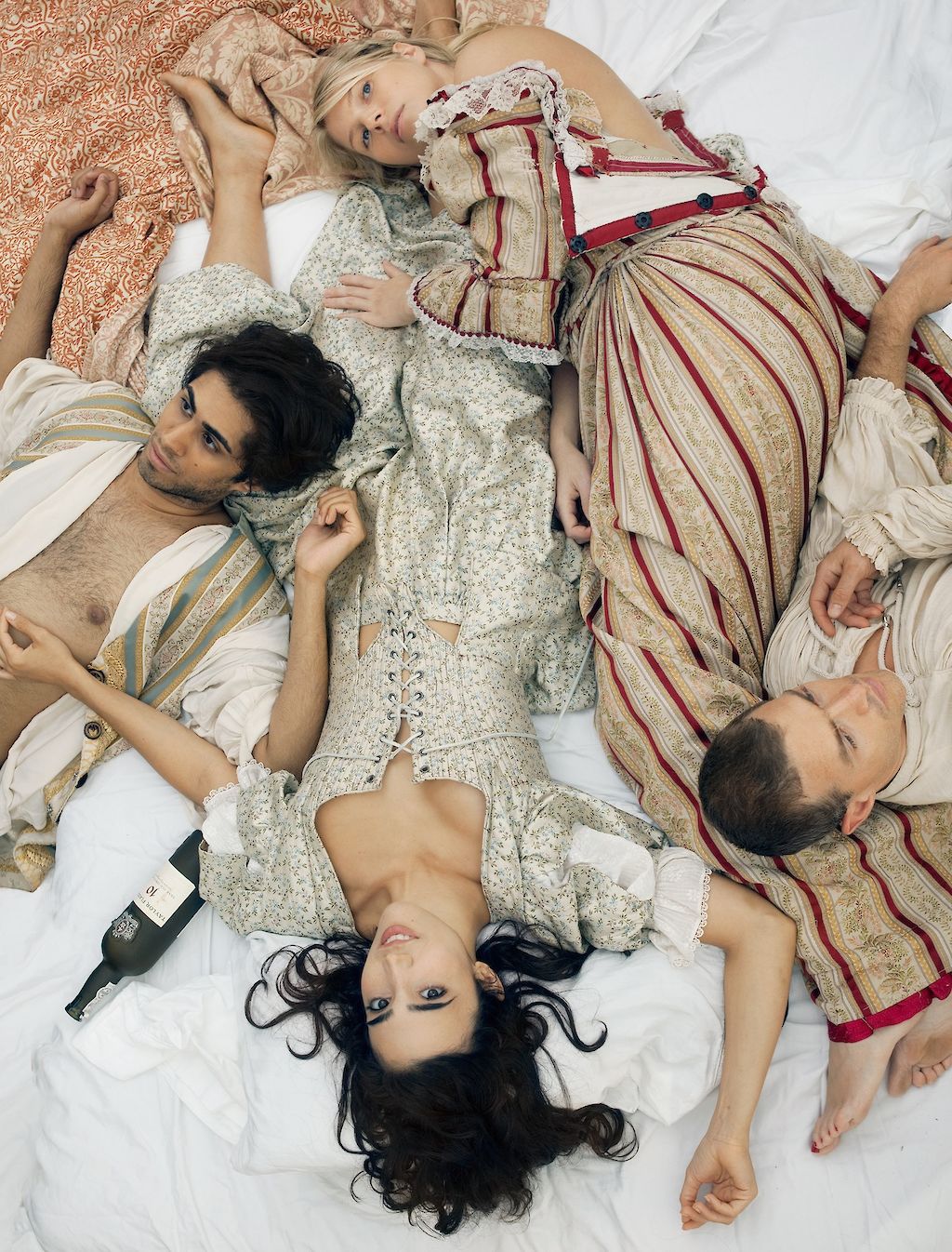
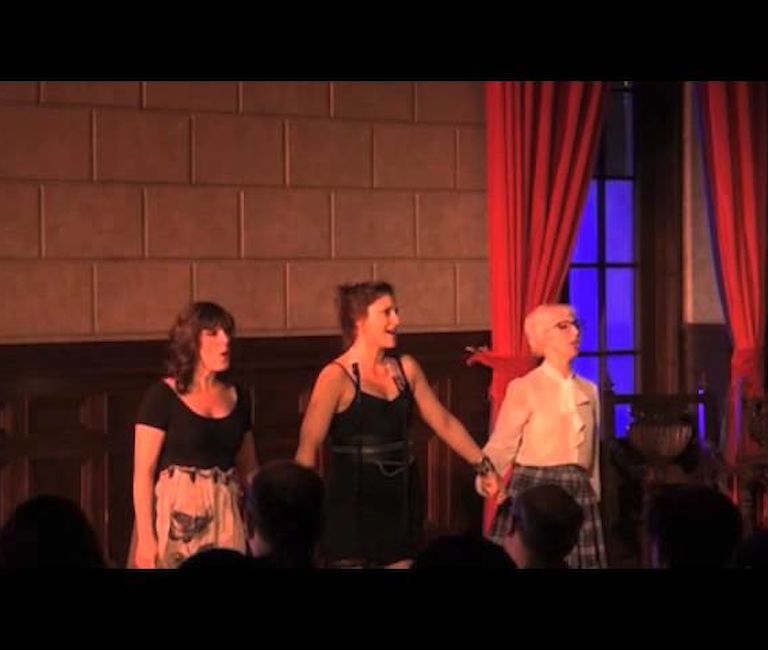
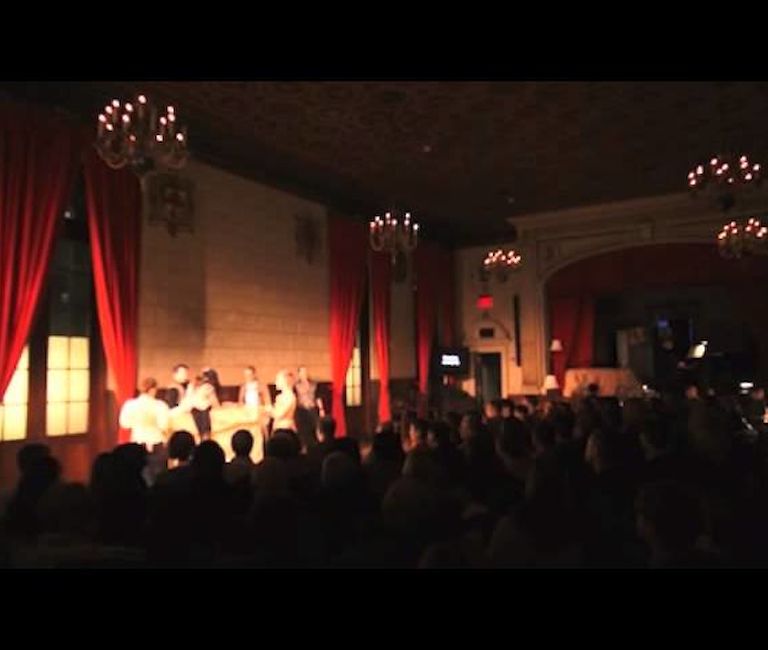
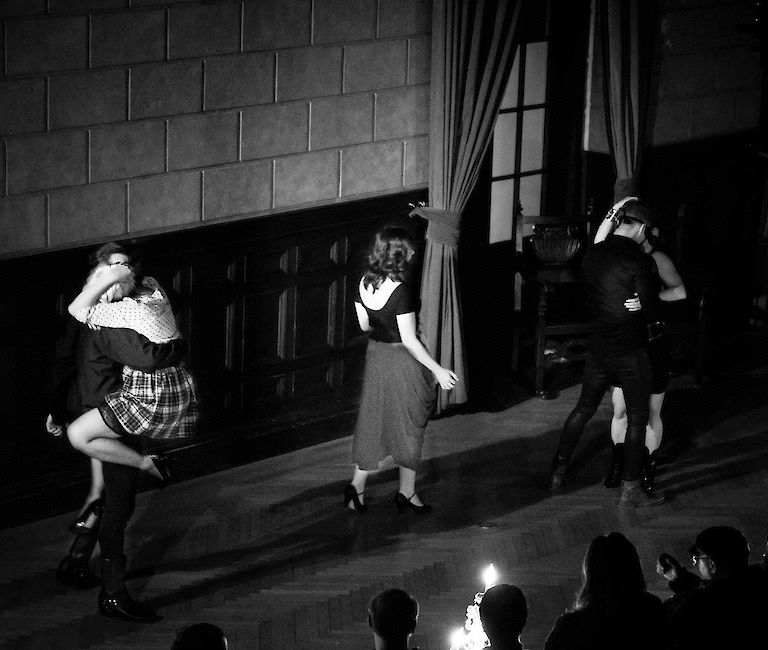
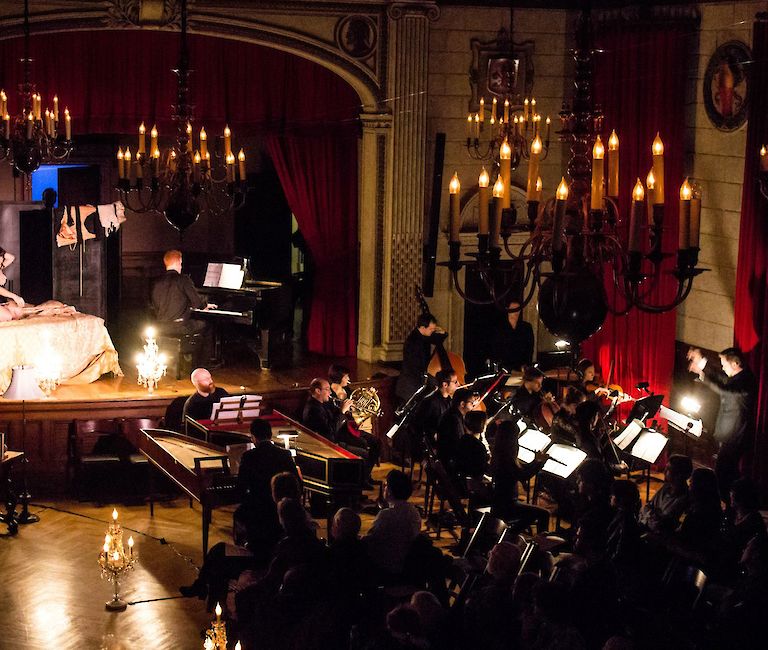
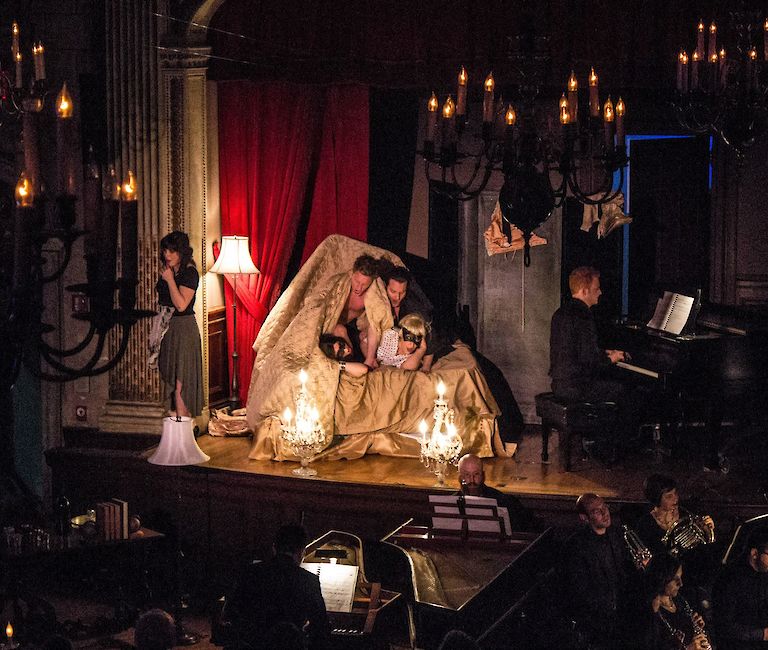
Stan Metzger, Editor in Chief, Seen and Heard International - 12/29/12
2012 Pick of the Year
Jonathan Dawe’s irresistible prequel to Mozart’s Così Fan Tutte is entitled Così Faran Tutti. The changing of the feminine Tutte to the genderless Tutti summarizes the opera’s plot change from one that singles out the guileless Fiordiligi and Dorabella for unfaithfulness to one that blames everyone. Dawe’s music is both modern and Mozartean. The singing, dancing and staging enchant on every level. The final scene is wildly funny with just about everyone dressed as someone else singing out of their range. Erudite yet earthy, Così Faran Tutti outshines many of our more famous contemporary operas.
Stan Metzger, Editor in Chief, Seen and Heard International - 12/15/12
Jonathan Dawe is one of our most talented and distinctive – yet little-known – contemporary composers. He will be looked back upon as one of the few librettists and composers of contemporary opera whose originality captivates and endears, whose music is both “modern” and deeply rooted in the past. Like Charles Ives’s scores, which at first seem gratuitously dissonant but ultimately resolve and reveal their grounding in traditional American music, so does Dawe’s music hearken back to Baroque and Classical opera. We’ve neither heard nor seen his operas – or have we?
Dawe’s genius is in his ability to deconstruct an earlier composer’s music, to fractalize it, breaking it down and then piecing it back together. This is no mere automatic process like randomizing notes. The result is music that, if not recognizable, seems familiar. In Così Faran Tutti, the overture’s fanfares, for example, echo Mozart. The continuo accompaniments to the recitatives (off-key in this case) mark the work as Mozart as well.
Stan Metzger, Seen and Heard International - 12/29/12
Jonathan Dawe’s irresistible prequel to Mozart’s Così Fan Tutte is entitled Così Faran Tutti. The changing of the feminine Tutte to the genderless Tutti summarizes the opera’s plot change from one that singles out the guileless Fiordiligi and Dorabella for unfaithfulness to one that blames everyone. Dawe’s music is both modern and Mozartean. The singing, dancing and staging enchant on every level. The final scene is wildly funny with just about everyone dressed as someone else singing out of their range. Erudite yet earthy, Così Faran Tutti outshines many of our more famous contemporary operas.
Stan Metzger, Editor in Chief, Seen and Heard International - 12/15/12
Jonathan Dawe is one of our most talented and distinctive – yet little-known – contemporary composers. He will be looked back upon as one of the few librettists and composers of contemporary opera whose originality captivates and endears, whose music is both “modern” and deeply rooted in the past. Like Charles Ives’s scores, which at first seem gratuitously dissonant but ultimately resolve and reveal their grounding in traditional American music, so does Dawe’s music hearken back to Baroque and Classical opera. We’ve neither heard nor seen his operas – or have we?
Dawe’s genius is in his ability to deconstruct an earlier composer’s music, to fractalize it, breaking it down and then piecing it back together. This is no mere automatic process like randomizing notes. The result is music that, if not recognizable, seems familiar. In Così Faran Tutti, the overture’s fanfares, for example, echo Mozart. The continuo accompaniments to the recitatives (off-key in this case) mark the work as Mozart as well.
Paul Pelkonen, Super-Conductor - 10/12/12
Dawe's two-act, Italian libretto is set to a fizzing, innovative score. He uses the Mozart original as a jumping-off point and a constant reference without descending into parody.